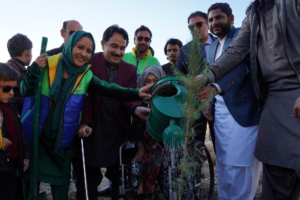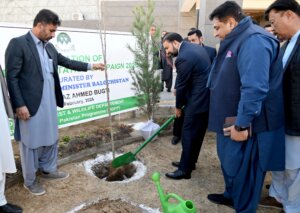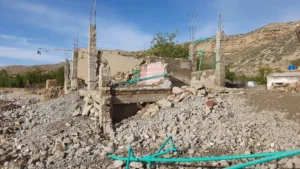Irfan Khan Tareen
Quetta: Forests, often regarded as Earth’s forever friends, are vital for economic development, environmental sustainability, and climate resilience. They enhance natural beauty, mitigate climate change, and combat harmful greenhouse gases. Despite their significance, deforestation in Pakistan is escalating, posing severe threats to biodiversity, infrastructure, and human settlements.
Why Forests Matter
Forests play an irreplaceable role in ensuring clean air, enriched biodiversity, and fertile soils. They improve oxygen levels, retain water in soil, and reduce land dryness. Beyond environmental benefits, forests significantly boost economic productivity, fulfill food requirements, and reduce poverty by fostering a sustainable ecosystem.
Key Benefits of Forests:
- Biodiversity Conservation: Forests provide shelter for countless species, including local and exotic birds, and help preserve ecosystems.
- Natural Disaster Mitigation: A robust forest cover reduces risks of flash floods, landslides, and other calamities.
- Climate Regulation: Forests act as carbon sinks, mitigating greenhouse gas emissions such as CO2, NOx, and SO2.
Deforestation: A Growing Threat in Pakistan
Pakistan’s forest cover is alarmingly low, accounting for only 5.4% of the total land area. The country loses approximately 27,000 hectares of forest annually due to deforestation, driven by urbanization, agricultural expansion, and poverty. This has led to increased pollution, landslides, and biodiversity loss.
Deforestation’s Alarming Consequences:
- Reduction in oxygen levels and increased greenhouse gases.
- Soil infertility and water scarcity.
- Extinction of animal species and disruption of ecosystems.
Urgent Need for Action
To address these challenges, Pakistan must adopt comprehensive policies to curb deforestation, protect biodiversity, and restore forest ecosystems. Government initiatives, local community participation, and collaboration with global organizations like WWF Pakistan and IUCN are crucial.
Proactive Measures to Combat Deforestation:
- Awareness Campaigns: Educate communities about the importance of forest conservation.
- Afforestation Drives: Plant more trees to increase forest cover.
- Sustainable Alternatives: Provide alternative fuel sources to reduce reliance on wood.
- Strict Policies: Implement and enforce anti-deforestation laws.
- Collaborative Efforts: Partner with international and local organizations for climate resilience projects.
The Role of Government and Communities
The government must allocate resources to revitalize local forests and incentivize communities to preserve green shields. Non-governmental organizations can bolster efforts by conducting research and promoting sustainable practices.
Conclusion
Protecting forests is not just an environmental obligation; it is a social and economic necessity. By discouraging deforestation, empowering local communities, and fostering collaboration, Pakistan can secure a healthier and more sustainable future. Let us embrace our responsibility to safeguard these natural treasures and work towards a greener, more resilient nation.






